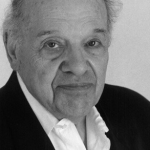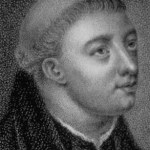through a work of art, usually a bridge
but sometimes a road that curves underneath
or drops down from the sky. Pittsburgh has a tunnel—
you don’t know it—that takes you through the rivers
and under the burning hills. I went there to cry
in the woods or carry my heavy bicycle
through fire and flood. Some have little parks—
San Francisco has a park. Albuquerque
is beautiful from a distance; it is purple
at five in the evening. New York is Egyptian,
especially from the little rise on the hill
at 14-C; it has twelve entrances
like the body of Jesus, and Easton, where I lived,
has two small floating bridges in front of it
that brought me in and out. I said good-bye
to them both when I was 57. I’m reading
Joseph Wood Krutch again—the second time.
I love how he lived in the desert. I’m looking at the skull
of Georgia O’Keeffe. I’m kissing Stieglitz good-bye.
He was a city, Stieglitz was truly a city
in every sense of the word; he wore a library
across his chest; he had a church on his knees.
I’m kissing him good-bye; he was, for me,
the last true city; after him there were
only overpasses and shopping centers,
little enclaves here and there, a skyscraper
with nothing near it, maybe a meaningless turf
where whores couldn’t even walk, where nobody sits,
where nobody either lies or runs; either that
or some pure desert: a lizard under a boojum,
a flower sucking the water out of a rock.
What is the life of sadness worth, the bookstores
lost, the drugstores buried, a man with a stick
turning the bricks up, numbering the shards,
dream twenty-one, dream twenty-two. I left
with a glass of tears, a little artistic vial.
I put it in my leather pockets next
to my flask of Scotch, my golden knife and my keys,
my joyful poems and my T-shirts. Stieglitz is there
beside his famous number; there is smoke
and fire above his head; some bowlegged painter
is whispering in his ear; some lady-in-waiting
is taking down his words. I’m kissing Stieglitz
good-bye, my arms are wrapped around him, his photos
are making me cry; we’re walking down Fifth Avenue;
we’re looking for a pencil; there is a girl
standing against the wall—I’m shaking now
when I think of her; there are two buildings, one
is in blackness, there is a dying poplar;
there is a light on the meadow; there is a man
on a sagging porch. I would have believed in everything.



















Comment form: